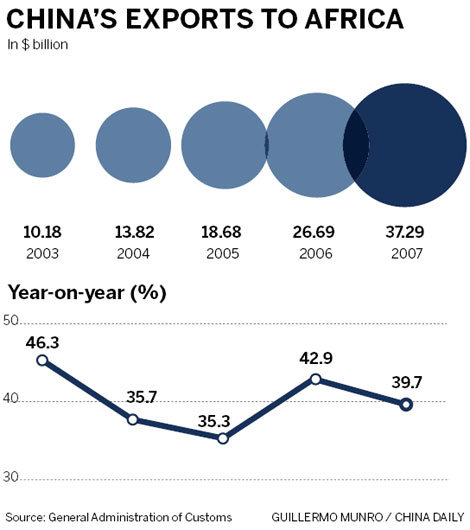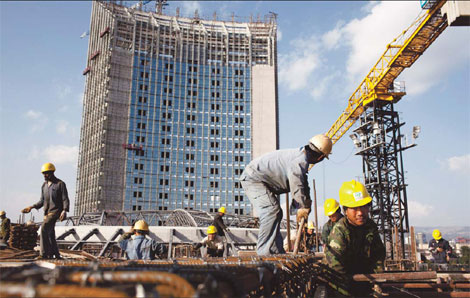Still room for investment
Updated: 2011-12-09 08:10
By Zhou Siyu (China Daily)
|
|||||||||||
|
Chinese construction workers build the new African Union Building in Addis Ababa, Ethiopia. Chinese companies are investing and working all over Africa and have improved infrastructure. Provided to China Daily |
Despite the impact of the unrest in North Africa, the African continent remains one of the most important investment destinations for Chinese companies, experts said.
"Unrest in North African countries has had only limited impact on Chinese investments. Cooperation between the two sides still has a bright future," said Shu Yunguo, director of the Center of African Studies at Shanghai Normal University.
A series of civilian protests and revolts have taken place in the Middle East and North Africa this year.
Affected by the ongoing unrest, some Chinese companies halted their investments in some African countries. In Libya, Chinese companies have either withdrawn or stopped operations since the political unrest broke out in February. During the same month, ZTE Corp, China's second-largest telecom equipment maker, evacuated 88 staff members, with only 20 local employees remaining in Libya for daily operations. The company is the largest telecom equipment provider in Libya, and has made investments worth 3 billion yuan ($457 million) since 1999.
In August, as some Chinese companies began to consider a return to Libya's market, Xie Yajing, commercial counselor of the Department of West Asian and African Affairs of the Ministry of Commerce, warned that it was still too risky to make or increase investments there.
The widespread unrest did affect some African countries, but analysts believe there are opportunities in other countries.
"I believe Chinese companies have enormous opportunities in African countries," said He Wenping, director of the African Studies Center at the Chinese Academy of Social Sciences.
"But Chinese businesses should have a thorough understanding of the local culture, customs and political stability before they enter the market," she added.
Ties between China and African countries have become increasingly closer during the recent years. Chinese investments achieved remarkable progress in the continent. In 2010, China's investments in Africa reached $1 billion from $100 million in 2001. By the end of 2010, the country's total investment volume in the continent exceeded $10 billion, compared with $490 million by the end of 2003, according to data from the Ministry of Commerce.
The rapid development of China's investments in Africa was partly facilitated by China's policy to open up its own market, added He.
This has prompted outflows of the nation's overseas investments across the world.
In the meantime, Chinese investments have also helped the development of economies in African countries.
"Chinese investments were welcomed in African countries. They have boosted local economic growth, and provided jobs for local people," said Shen Danyang, a spokesman for the Ministry of Commerce during a forum at the 15th China International Fair for Investment and Trade in Xiamen, Fujian province.
Yang Lihua, director of the Center of Southern African Studies at the Chinese Academy of Social Sciences, said that China's investments in South Africa have increased the country's industrialization.
"Besides more jobs and better infrastructure, Chinese companies brought in their experience and advanced technologies in manufacturing and processing industries," she said during a recent interview.
But there is still room for improvement. "Chinese companies should learn to blend into the local community and perform their share of social responsibility," said Shu from Shanghai Normal University.
And some companies should step up their effort to improve their product quality in the local market and build up their reputation, said He from the Chinese Academy of Social Sciences.










